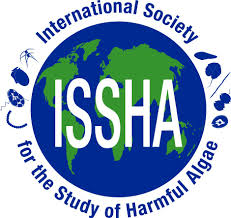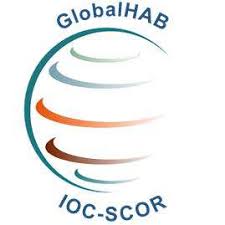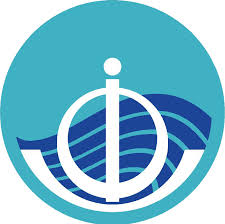International Research Programs
Research and management of HABs is a responsibility of individual nations, but the global nature of the problem has led to the formulation of many international programs, both bi- and multi-lateral.
 The International Society for the Study of Harmful Algae (ISSHA) was founded in 1997, in response to a request from the Intergovernmental Oceanographic Commission (IOC) of UNESCO for an international programme on harmful algae. The overall mandate of the Society is to promote and foster research and training programs on harmful algae, and to co-sponsor meetings on this topic at the national, regional, and international level.
The International Society for the Study of Harmful Algae (ISSHA) was founded in 1997, in response to a request from the Intergovernmental Oceanographic Commission (IOC) of UNESCO for an international programme on harmful algae. The overall mandate of the Society is to promote and foster research and training programs on harmful algae, and to co-sponsor meetings on this topic at the national, regional, and international level.
 The Global Harmful Algal Blooms (GlobalHAB) Program is an international scientific programme on HABs. It is aimed at fostering and promoting co-operative research directed toward improving the understanding and prediction of HAB events, and providing scientific knowledge to manage and mitigate their impacts against the background of global changes in climate, and increased anthropogenic pressures on aquatic ecosystems. GlobalHAB is a continuation of the first international programme, GEOHAB (Global Ecology and Oceanography of Harmful Algal Blooms) created in 2001 to foster international cooperation to advance understanding of HAB dynamics and to improve our ability to predict HABs. GlobalHAB will operate for 10 years, from 2016 to 2025.
The Global Harmful Algal Blooms (GlobalHAB) Program is an international scientific programme on HABs. It is aimed at fostering and promoting co-operative research directed toward improving the understanding and prediction of HAB events, and providing scientific knowledge to manage and mitigate their impacts against the background of global changes in climate, and increased anthropogenic pressures on aquatic ecosystems. GlobalHAB is a continuation of the first international programme, GEOHAB (Global Ecology and Oceanography of Harmful Algal Blooms) created in 2001 to foster international cooperation to advance understanding of HAB dynamics and to improve our ability to predict HABs. GlobalHAB will operate for 10 years, from 2016 to 2025.
 The overall goal of UNESCO's Intergovernmental Oceanographic Commission (IOC) HAB program is to foster and coordinate international research on HABs in order to understand their causes, predict their occurrences, and mitigate their effects.
The overall goal of UNESCO's Intergovernmental Oceanographic Commission (IOC) HAB program is to foster and coordinate international research on HABs in order to understand their causes, predict their occurrences, and mitigate their effects.
 The International Atomic Energy Agency is the world's central intergovernmental forum for scientific and technical co-operation in the nuclear field. It works for the safe, secure and peaceful uses of nuclear science and technology, contributing to international peace and security and the United Nations' Sustainable Development Goals. In cooperation with international partners, the IAEA funds workshops and research focused on using nuclear techniques to detect and measure biotoxins in seafood.
The International Atomic Energy Agency is the world's central intergovernmental forum for scientific and technical co-operation in the nuclear field. It works for the safe, secure and peaceful uses of nuclear science and technology, contributing to international peace and security and the United Nations' Sustainable Development Goals. In cooperation with international partners, the IAEA funds workshops and research focused on using nuclear techniques to detect and measure biotoxins in seafood.
 PICES, the North Pacific Marine Science Organization, is an intergovernmental scientific organization with the following goal: (1) to promote and coordinate marine research in the northern North Pacific and adjacent seas especially northward of 30 degrees North; (2) Advance scientific knowledge about the ocean environment, global weather and climate change, living resources and their ecosystems, and the impacts of human activities; and (3) Promote the collection and rapid exchange of scientific information on these issues.
PICES, the North Pacific Marine Science Organization, is an intergovernmental scientific organization with the following goal: (1) to promote and coordinate marine research in the northern North Pacific and adjacent seas especially northward of 30 degrees North; (2) Advance scientific knowledge about the ocean environment, global weather and climate change, living resources and their ecosystems, and the impacts of human activities; and (3) Promote the collection and rapid exchange of scientific information on these issues.
